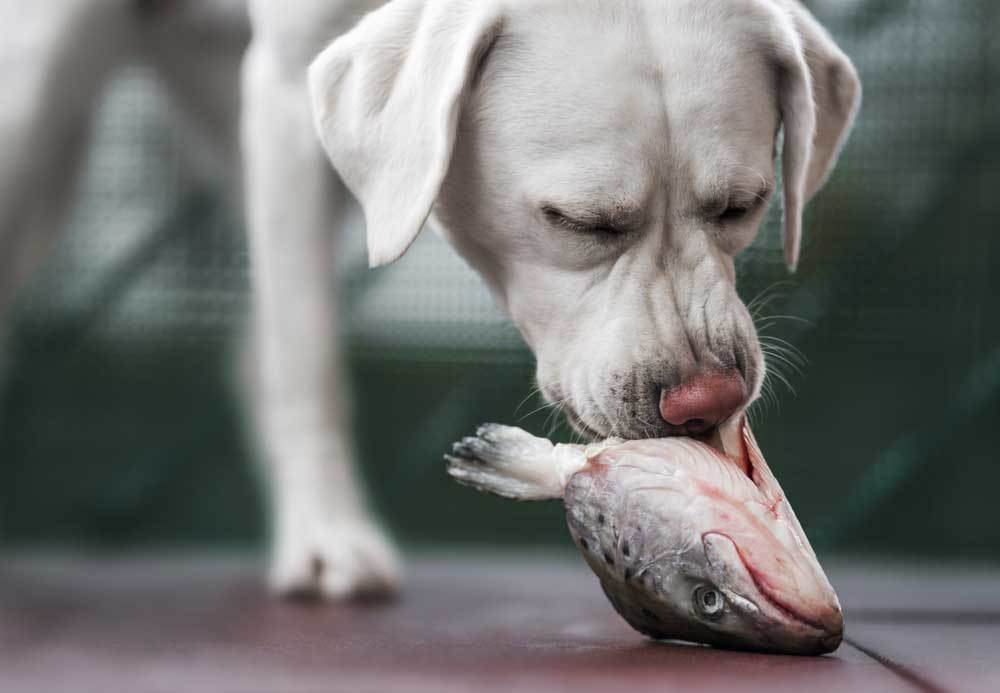Nutrition
Feeding Sardines to Dogs: Benefits, Risks, and How Often to Feed Them

Hey there! If you’re a dog owner, you’ve probably heard that sardines are a great source of nutrition for dogs. But how often can you feed them to your furry friend? In this article, we’ll explore the benefits of sardines for dogs, how often you can safely feed them, and other useful information to help you make the best decision for your pup.
Nutritional benefits of sardines
Sardines are loaded with nutrients that can benefit your dog’s health. They are a great source of protein, which helps build and repair muscles. Sardines also contain omega-3 fatty acids, which are essential for a healthy coat, skin, and joints. They are also rich in vitamins and minerals, such as calcium, phosphorus, and vitamin D. All of these nutrients work together to keep your dog healthy and happy.
Risks of feeding sardines to dogs
While sardines are generally safe for dogs to eat, there are some risks to be aware of. One of the main risks is the potential for choking. Sardines are small and contain bones, which can get lodged in your dog’s throat. Additionally, sardines can contain high levels of mercury, so it’s important to feed them in moderation. Too much mercury can cause health problems for your dog, so it’s best to limit their intake.
How often to feed sardines to dogs
So, how often can you feed your dog sardines? The answer depends on your dog’s size and overall health. As a general rule, you should feed sardines in moderation, no more than once or twice a week. For smaller dogs, a small piece of sardine is enough, while larger dogs can have a whole sardine. If your dog has health issues or is on medication, it’s best to consult with your vet before adding sardines to their diet.
Feeding sardines to dogs with specific health conditions
Sardines can be especially beneficial for dogs with specific health conditions. For example, dogs with arthritis can benefit from the anti-inflammatory properties of omega-3 fatty acids found in sardines. Dogs with skin allergies can also benefit from the nutrients found in sardines, which can help improve the condition of their skin and coat.
How to choose high-quality sardines
When selecting sardines for your dog, it’s important to choose high-quality ones. Look for sardines that are sustainably sourced and free from additives or preservatives. You can also opt for sardines that are canned in water or olive oil instead of brine or sauce.
Recipes for sardine-based dog meals
If you’re looking for creative ways to incorporate sardines into your dog’s diet, there are plenty of recipe ideas to choose from. For example, you can mix sardines with mashed sweet potatoes or rice for a nutritious meal. You can also add sardines to your dog’s kibble or use them as a healthy treat.
Common myths and misconceptions about feeding sardines to dogs
There are some common myths and misconceptions surrounding feeding sardines to dogs. One myth is that sardines can cause a dog’s coat to become too oily. This is not true. In fact, the omega-3 fatty acids found in sardines can actually help improve the condition of a dog’s coat and skin.
Conclusion
In conclusion, sardines can be a great addition to your dog’s diet, but they should be fed in moderation and with proper preparation. Always be aware of the risks associated with feeding sardines to dogs, such as choking hazards and mercury toxicity. Consult with your vet if your dog has health issues or is on medication. And remember, there are alternative sources of omega-3 fatty acids and other nutrients that dogs need, so don’t feel limited to feeding them sardines.
With the guidelines provided in this article, you can safely and effectively incorporate sardines into your dog’s diet and provide them with the nutritional benefits that they offer. Just remember to choose high-quality sardines, prepare them properly, and follow the recommended feeding guidelines. By doing so, you can help ensure that your furry friend stays healthy and happy for years to come.
Further Reading:
- “The Ultimate Pet Health Guide: Breakthrough Nutrition and Integrative Care for Dogs and Cats” by Gary Richter – This book offers advice on nutrition, supplements, and alternative therapies for pets, including information on feeding sardines.
- “Dr. Pitcairn’s Complete Guide to Natural Health for Dogs & Cats” by Richard H. Pitcairn – This book provides a comprehensive guide to natural health care for pets, including tips on feeding a balanced and nutritious diet that includes sardines.
- “Feed Your Best Friend Better: Easy, Nutritious Meals and Treats for Dogs” by Rick Woodford – This cookbook contains recipes for homemade dog food and treats, many of which include sardines as a nutritious ingredient.
- “Raw and Natural Nutrition for Dogs, Revised Edition: The Definitive Guide to Homemade Meals” by Lew Olson – This book provides guidance on preparing homemade meals for dogs, including information on incorporating sardines into a balanced and healthy diet.
I hope you find these resources helpful! Remember, always consult with your vet before making any major changes to your dog’s diet.

